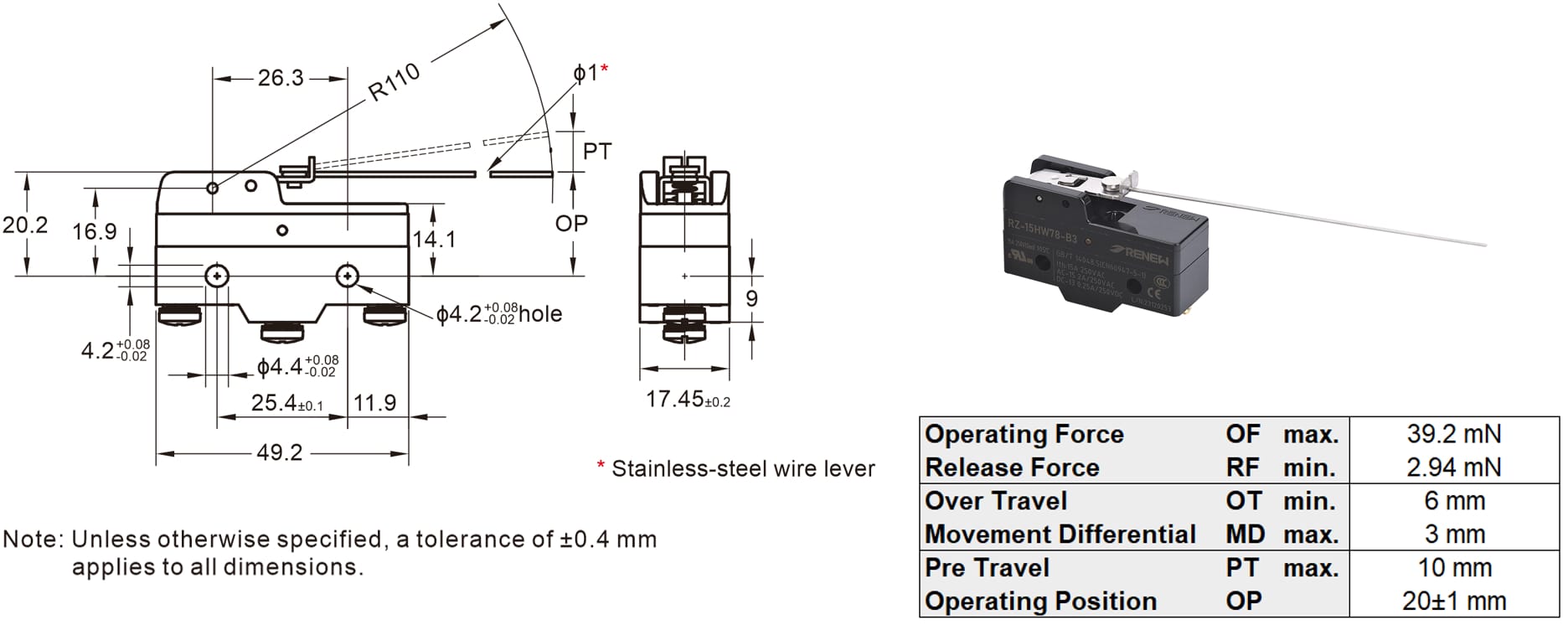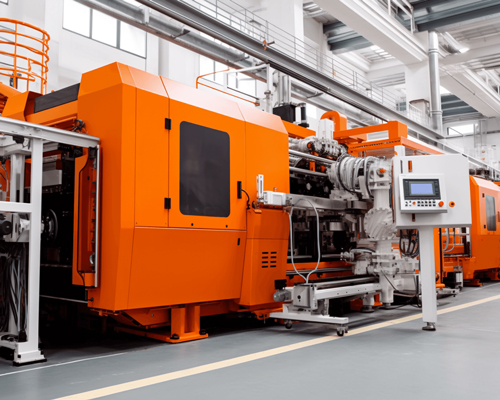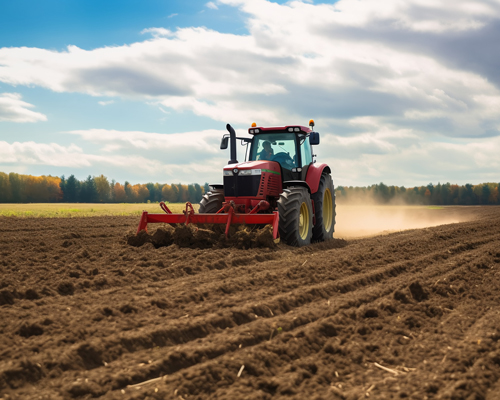Low-force Wire Hinge Lever Basic Switch
-

High Precision
-

Enhanced Life
-

Widely Used
Product Description
Compared with the low-force hinge lever switch, the switch with a wire hinge lever actuator does not need to have such a long lever to achieve a low operating force. Renew’s RZ-15HW52-B3 has the same lever length as the standard hinge lever model, but can achieve an operating force (OP) of 58.8 mN. By lengthening the lever, the OP of Renew’s RZ-15HW78-B3 can be further reduced to 39.2 mN. They are ideal for devices that require delicate operation.
Dimensions and Operating Characteristics

General Technical Data
| Rating | 10 A, 250 VAC |
| Insulation resistance | 100 MΩ min. (at 500 VDC) |
| Contact resistance | 15 mΩ max. (initial value) |
| Dielectric strength | Between contacts of same polarity Contact gap G: 1,000 VAC, 50/60 Hz for 1 min Contact gap H: 600 VAC, 50/60 Hz for 1 min Contact gap E: 1,500 VAC, 50/60 Hz for 1 min |
| Between current-carrying metal parts and ground, and between each terminal and non-current-carrying metal parts 2,000 VAC, 50/60 Hz for 1 min | |
| Vibration resistance for malfunction | 10 to 55 Hz, 1.5 mm double amplitude (malfunction: 1 ms max.) |
| Mechanical life | Contact gap G, H: 10,000,000 operations min. Contact gap E: 300,000 operations |
| Electrical life | Contact gap G, H: 500,000 operations min. Contact gap E: 100,000 operations min. |
| Degree of protection | General-purpose: IP00 Drip-proof: equivalent to IP62 (except terminals) |
Application
Renew's basic switches play a vital role in ensuring the safety, accuracy and reliability of various equipment in different fields. Whether in industrial automation systems, or in medical equipment, home appliances, transportation, and aerospace technology, these switches play an indispensable role. They can not only improve the operating efficiency of the equipment, but also significantly reduce the failure rate and extend the service life of the equipment. Below are some popular or potential application examples illustrating the widespread use and importance of these switches in various fields.

Sensors and monitoring devices
Sensors and monitoring devices are commonly used in industrial-grade systems as fast response mechanisms within equipment to regulate pressure and flow.

Industrial Machinery
In the field of industrial machinery, these devices are used on machine tools to limit the maximum movement range of the equipment and detect the position of the workpiece to ensure precise positioning and safe operation during processing.

Agricultural and gardening devices
In agricultural and gardening equipment, these sensors and monitoring devices are used to monitor the status of various components of agricultural vehicles and gardening equipment and alert operators to perform necessary maintenance, such as changing oil or air filters.













